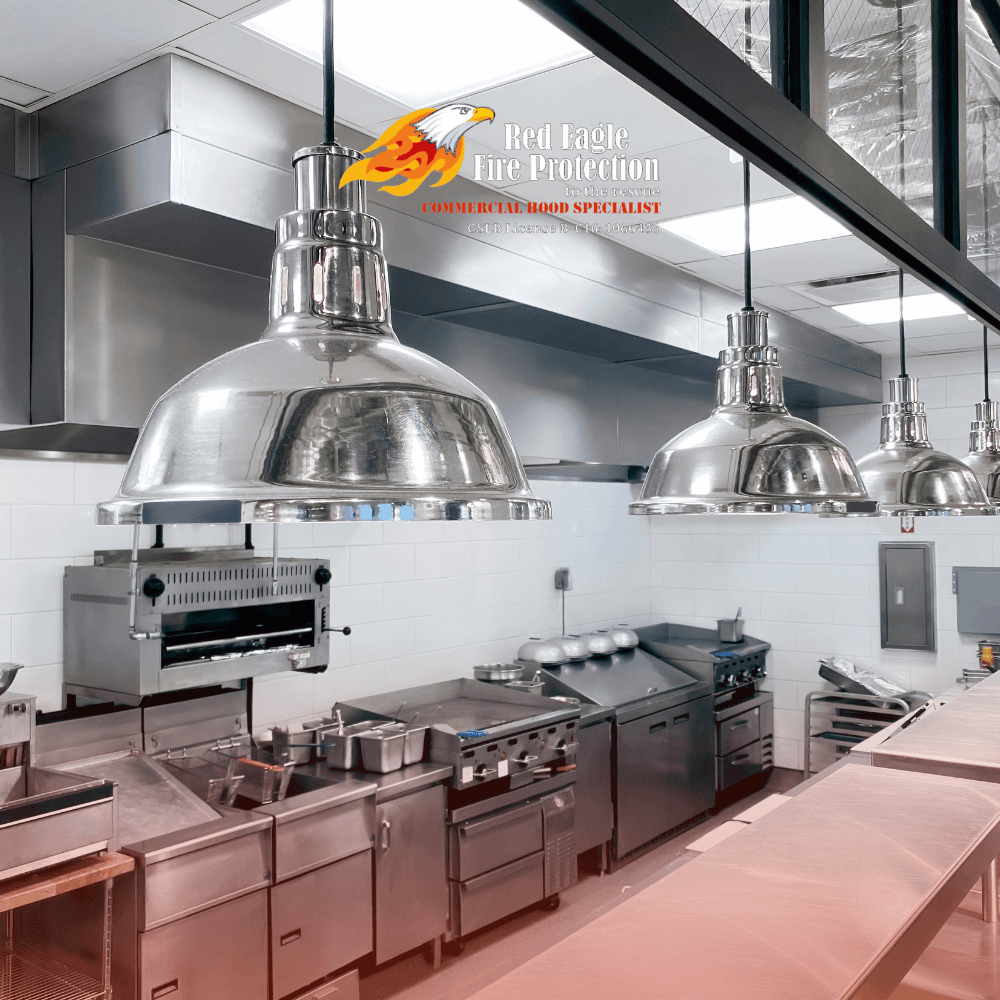Managing a commercial kitchen requires attention to many details, one of the most crucial being the cleanliness of the kitchen exhaust hood. When left uncleaned, grease buildup can turn your ventilation system into a fire hazard. Regular kitchen exhaust hood cleaning plays a vital role in preventing this risk and maintaining a safe cooking environment.
Understanding the Fire Risks of Grease Buildup
Grease, fats, and oils are byproducts of cooking that tend to accumulate on kitchen surfaces, including the exhaust hood. Over time, these deposits can harden, creating a highly flammable layer within the ductwork. A spark from cooking or even a minor kitchen fire can ignite this residue, spreading flames throughout the ventilation system. This is why kitchen exhaust hood maintenance is essential for commercial kitchens.
Benefits of Regular Kitchen Exhaust Hood Cleaning
Performing regular kitchen hood cleaning offers several benefits that go beyond fire prevention. By eliminating grease buildup, you improve air quality, ensure compliance with local health regulations, and extend the lifespan of your exhaust system. Here are some of the key advantages:
- Fire Prevention: Reduces the risk of grease fires that could spread through your duct system.
- Enhanced Air Quality: Improves the overall indoor air environment by reducing smoke and odors.
- Regulatory Compliance: Helps meet local fire and safety codes, ensuring your kitchen remains operational.
Effective Solutions for Cleaning Kitchen Exhaust Hoods
There are various approaches to kitchen exhaust hood cleaning services, each designed to effectively eliminate grease and debris. Whether you prefer professional services or DIY methods, understanding your options is key to maintaining a clean and safe kitchen:
Professional Kitchen Exhaust Hood Cleaning Services
Hiring a professional kitchen exhaust cleaning company ensures that the job is done thoroughly. These experts use specialized equipment to clean deep within the ducts and filters, removing all traces of grease. Professional services are especially recommended for commercial kitchens due to the volume of cooking and grease accumulation.
DIY Kitchen Hood Cleaning Techniques
For smaller kitchens, some opt for DIY solutions like using degreasers and scrubbing the accessible parts of the hood. While this can be effective as part of a regular maintenance routine, it often lacks the depth of a professional cleaning. Ensure that you reach all parts of the exhaust system to avoid hidden grease deposits.
When to Schedule Kitchen Exhaust Hood Cleaning
Understanding how often to clean your kitchen exhaust hood depends on the frequency of use. A high-volume restaurant should consider scheduling exhaust hood cleaning at least every three months. Smaller kitchens might manage with semi-annual cleanings. Regular inspections can help determine the right frequency, ensuring that grease does not accumulate to dangerous levels.
Conclusion: Protecting Your Kitchen from Fire Risks
Neglecting kitchen exhaust hood cleaning is a serious risk, as grease buildup can quickly turn your ventilation system into a fire hazard. By investing in regular maintenance, you can improve safety, air quality, and efficiency in your kitchen. Whether you choose professional services or DIY cleaning methods, keeping your kitchen hood clean is essential for the long-term safety of your cooking environment.
READ MORE:

